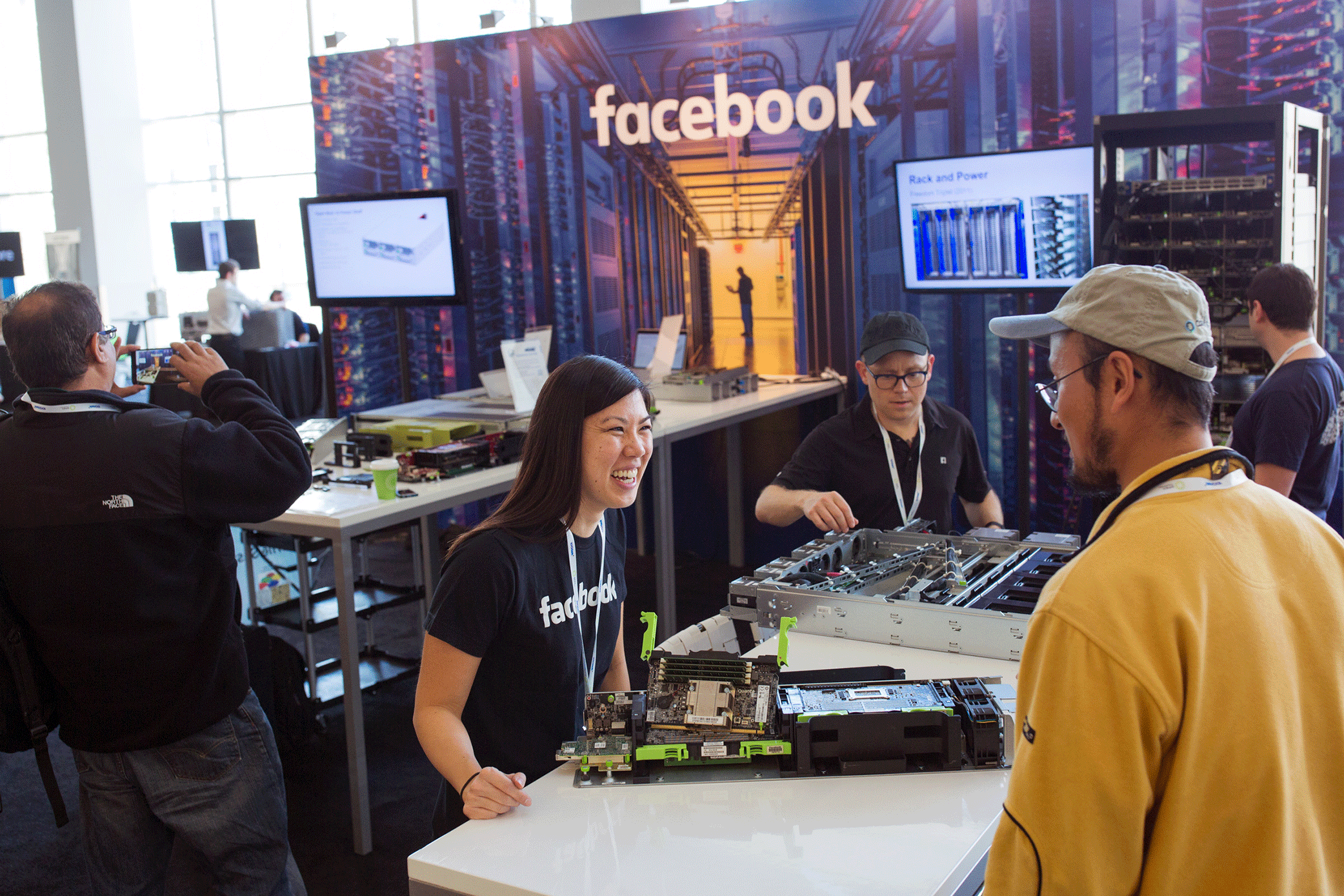Five years ago, the Open Compute Project (OCP) was born of a simple idea: Companies could innovate data center technology faster if hardware design were done in the open. Thousands of participants and hundreds of companies have joined in that effort since OCP was founded, and this week they gathered in San Jose to talk open hardware at the Open Compute Project U.S. Summit. This year's conference focused on the evolution of use cases for open hardware, new industries reached through OCP adoption, and challenges to anticipate as we look ahead.
Facebook's Jason Taylor — the current OCP president — opened the conference with a look at how adoption of OCP technologies among highly scaled companies is driving momentum into new organizations and new industries, such as telecom. He also pointed to trends on the horizon, namely 19" data center gear, and opening up the networking stack as the next big step in data center disaggregation. You can watch his keynote here.
Jay Parikh, Facebook's head of engineering and infrastructure, talked about the flexibility that arises as a result of disaggregation — breaking things down into basic building blocks that can then be built up again into different configurations lets companies scale quickly and efficiently. These building blocks enabled Facebook to create new shared experiences like live video and 360 video quickly, and made the infrastructure flexible enough to support advances in artificial intelligence research.
He also emphasized the need to push the boundaries on storage and discussed a new class of technologies using non-volatile memory, including Facebook's collaboration with Intel on improvements in this space. Collaborations are often the driving force behind advancements in the data center, and this year Google announced that it has joined OCP and will work with Facebook on its first contribution, a 48V rack power distribution.
Facebook also announced several new contributions and collaborations at the OCP Summit:
For more highlights from the opening keynotes and day 1 of the summit, visit the OCP blog.










